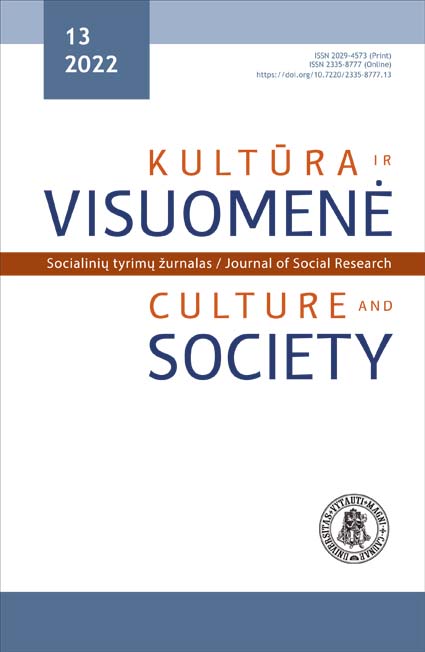Y kartos individų socialinės integracijos Lietuvos kariuomenėje kultūriškumas: kokie iššūkiai jos laukia
The Culture of the Social Integration of Generation Y Individuals in the Lithuanian Armed Forces – What Challenges Await the Lithuanian Armed Forces?
Author(s): Paulius BalsysSubject(s): Sociology, Sociology of Culture
Published by: Vytauto Didžiojo Universitetas
Keywords: Generation Y; Sstructuration theory; Military sociology; Social integration;
Summary/Abstract: Generation Y is currently one of the largest age cohort representatives performing military service worldwide and in the Lithuanian armed forces. Generation Y individuals are more individualistic compared to previous generations: generation X or-Baby Boomers. Meanwhile, military service requires greater involvement and dedication to collective goals from individuals, compared to civilian professions – it is a greedy, total, and more socially isolated profession (Soeters 2018, Soeters and et al. 2006). Research shows that Generation Y individuals leave the labor market more easily – they change jobs if they do not satisfy their expectations. The purpose of the article is to reveal the value features of social integration in the military service of generation Y individuals (officers and non-commissioned officers) serving in the Lithuanian armed forces. The study is exceptional because it reveals the value aspects of the social integration of generation Y soldiers – the implementation of which in the military service is a condition for social inclusion. The research is conducted using a semi-structured interview with 22 generation Y individuals who are actively performing military service in the Lithuanian armed forces or who have served previously but terminated their contracts prematurely. The article presents unique cultural aspects of the social integration of generation Y individuals into the armed forces, like the need for creativity and growth or alienating features like the imitation of work, stagnation, or suppression of innovations. That allows us to consider not only the current expectations of generation Y individuals in the military service but also to foresee the challenges awaiting Lithuanian armed forces in the future.
Journal: Kultūra ir visuomenė: socialinių tyrimų žurnalas
- Issue Year: 13/2022
- Issue No: 1
- Page Range: 76- 95
- Page Count: 20
- Language: Lithuanian

